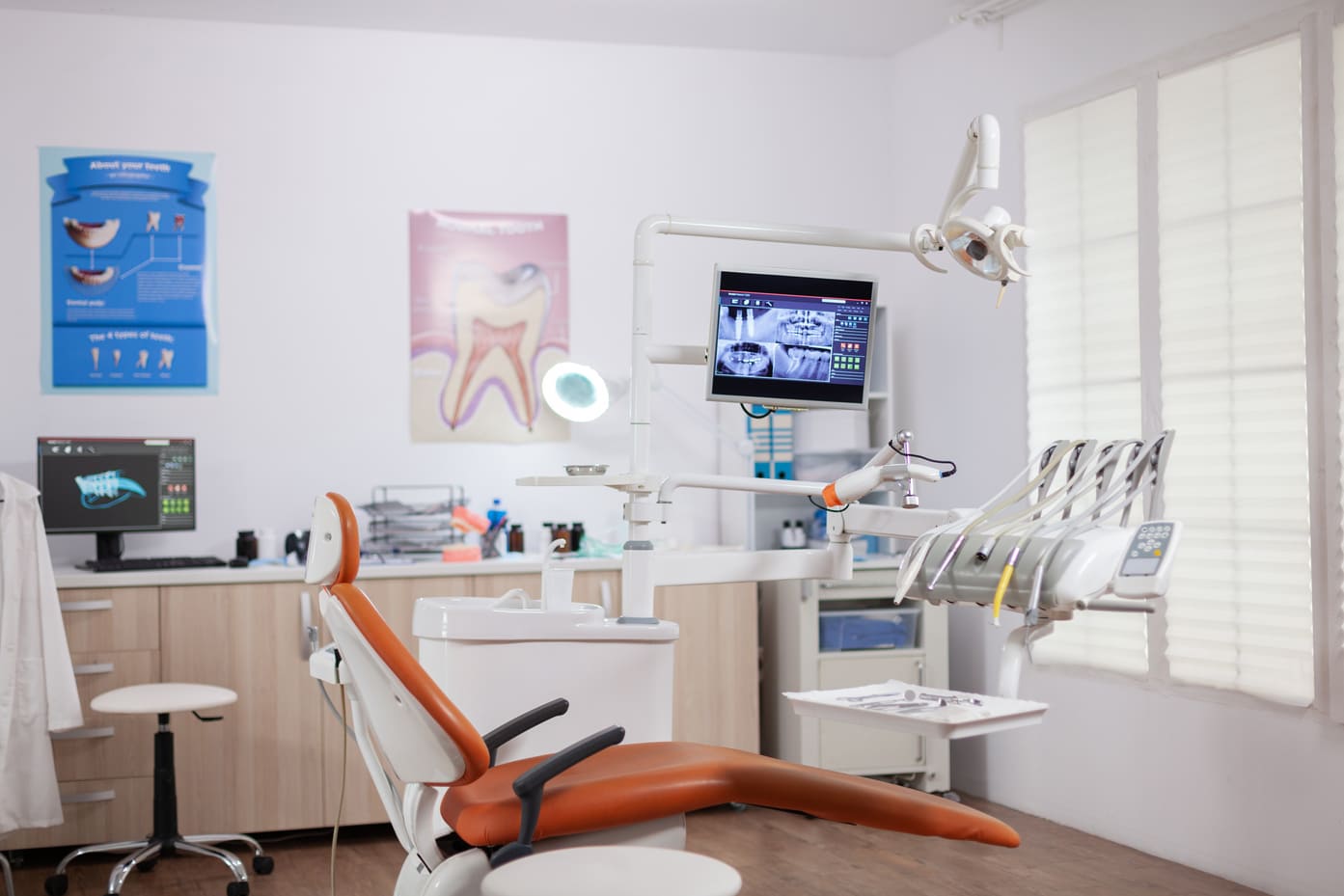In a dental clinic, maintaining a visibly clean space is only part of the equation. What’s harder to see — but just as important — are the allergens and bacteria that can build up in the air, on surfaces, and in equipment. If not addressed consistently and properly, these invisible threats can compromise patient safety, reduce staff productivity, and negatively impact your reputation.
Whether your practice is in Charlotte, Concord, or surrounding areas, this guide breaks down how to effectively reduce allergens and bacteria in a dental clinic and create a healthier, safer environment for everyone.
Why Allergens and Bacteria Are a Real Concern
Dental clinics deal with:
- High patient turnover
- Close contact with bodily fluids
- Shared spaces and surfaces
- Constant movement and aerosol-generating procedures
All of these contribute to the spread of microscopic particles like dust mites, pollen, pet dander, mold spores, and dangerous bacteria including Staphylococcus aureus, E. coli, and Streptococcus. These contaminants can linger on chairs, tools, keyboards, and even in the HVAC system.
For patients with allergies, asthma, or weakened immune systems, these pollutants can trigger serious health issues. And for staff, ongoing exposure can lead to fatigue, irritation, or illness — increasing sick days and reducing morale.
Practical Ways to Reduce Allergens and Bacteria
1. Improve Air Quality
Install medical-grade HEPA air purifiers in waiting rooms and treatment areas. These systems trap 99.97% of airborne particles as small as 0.3 microns. Pair them with UV-C technology for added antimicrobial protection.
Also:
- Replace HVAC filters monthly
- Keep air vents and ducts clean
- Avoid wall-to-wall carpeting in clinical zones
2. Use the Right Cleaning Products
Not all disinfectants are created equal. Use EPA-approved, hospital-grade disinfectants that are safe for clinical environments and proven to eliminate bacteria and viruses.
Avoid overly fragrant cleaners that may irritate patients with allergies or sensitivities.
3. Implement a Strict Cleaning Schedule
Surfaces should be disinfected between every patient, especially:
- Dental chairs and headrests
- Overhead lights and trays
- Handles, buttons, switches, and keyboards
- Pens and clipboard areas at the front desk
Floors, walls, and baseboards should be cleaned and mopped daily with microfiber tools designed to trap particles — not spread them.
4. Deep Clean Regularly
Hire a professional team to deep clean:
- Upholstery and rugs (vacuumed with HEPA filters or steam cleaned)
- Air vents, ceiling fans, and light fixtures
- Cabinet interiors and drawers
- Restroom grout and tile
- Breakrooms and shared staff spaces
We recommend monthly or biweekly deep cleaning, depending on your clinic’s volume.
5. Minimize Clutter
Fewer surfaces = fewer places for allergens and bacteria to accumulate. Keep countertops clear, avoid fabric furniture in waiting areas, and use closed storage containers for supplies.
Partner With a Professional Cleaning Service
At Commercial Cleaning Masters, we specialize in dental and medical cleaning across Charlotte, NC. Our service includes:
- Use of allergy-conscious, non-toxic products
- HEPA-filter vacuuming
- Disinfection of high-touch and hard-to-clean areas
- Odor and air quality control
- Customized plans based on patient flow and clinic size
Final Thoughts
Reducing allergens and bacteria isn’t just a best practice — it’s a commitment to better care. Patients may not always notice the microscopic work you’re doing, but they’ll feel the difference in comfort and confidence.
Let Commercial Cleaning Masters help your dental clinic breathe easier. We don’t just clean — we protect.

